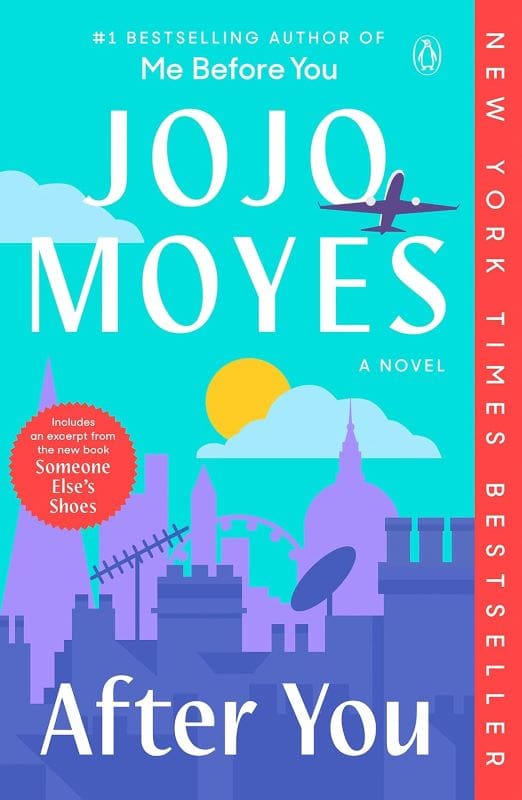

“After You” by Jojo Moyes, a sequel to the hugely popular “Me Before You,” is an intriguing blend of laughter, grief, and the journey of self-discovery. Set 18 months after the heart-wrenching events of the first book, it delves into Louisa Clark’s life as she grapples with the loss of Will Traynor and tries to navigate her way through a world without him.


One of the most striking aspects of “After You” is Moyes’ ability to infuse humor into somber themes. Despite dealing with grief – a topic that could easily make for a heavy read – Moyes manages to keep the tone light and often humorous. This approach aligns with her style, often compared to authors like Maeve Binchy, where an understanding of family dynamics, a nod to social issues, and a sentimental streak are blended seamlessly with a touch of humor.
Louisa’s character in “After You” shows a marked change from the bubbly persona we saw in “Me Before You.” Her feistiness seems subdued, replaced by a sense of loss and stagnation as she struggles with her dead-end job and the overwhelming feeling of being stuck. Yet, Moyes doesn’t let her protagonist wallow in sorrow for too long. The introduction of new characters like the handsome paramedic Sam and the rebellious teenager Lily injects a new dynamic into the story, propelling Louisa – and the narrative – forward.
The book also revisits familiar characters, adding depth to the story. Lou’s family, with their comic quirks, and Will’s grieving parents, offer a spectrum of reactions to life’s challenges, making the story relatable. Moyes skilfully portrays Louisa’s journey as a bumpy, unpredictable process, filled with moments of self-doubt and fear of moving on. Yet, it’s this unpredictability and rawness that makes her journey authentic and compelling.
However, it’s not all smooth sailing. The sequel, while maintaining the charm of the first book, does face the challenge of living up to its predecessor’s legacy. Some readers might find the absence of Will’s character leaving a void that the new characters can’t quite fill. This shift in focus to Louisa’s personal growth, though essential, might not resonate with those who were more invested in her relationship with Will.
In essence, “After You” is a story of coping and resurgence. It’s about how life can throw unexpected twists and how we, as individuals, respond to these changes. It’s a testament to Moyes’ storytelling prowess that she can tackle such heavy themes while keeping the narrative engaging and hopeful. The book certainly sets the stage for a third installment, and it leaves one curious about what’s next in store for Louisa.
In conclusion, “After You” is a heartfelt, humorous, and at times poignant tale of love, loss, and finding oneself amidst the chaos of life. It may not have the same emotional punch as “Me Before You,” but it stands as a worthy sequel that explores the complexities of moving on after a great loss